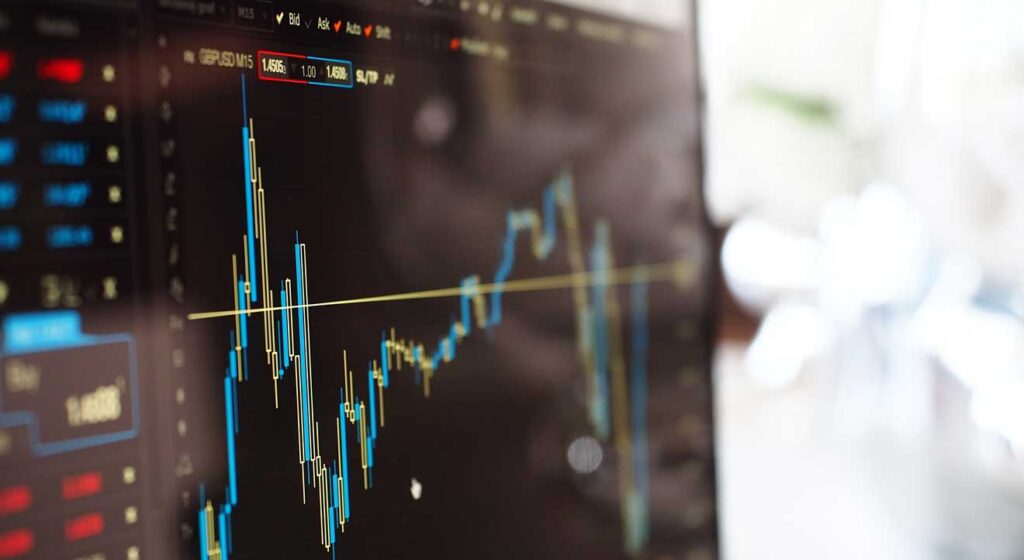There is an old joke amongst economists: “Why was astrology invented? So economics would seem like an accurate science.” And indeed, the reactions to the Bank of England’s doom-laden August projections have been mixed and somewhat muted, as business leaders and investors await further policy developments from Liz Truss. The consensus, it seems, is that, in a climate of high uncertainty and geopolitical volatility, we should not give isolated forecasts a lot of weight.
Firstly, however, what is a recession, and how do we know if we are heading for one? Some economists define a recession as two consecutive quarters of falling real GDP, however others counsel a more holistic look at the data – including a look at the labour market, consumer and business spending, industrial production, and real incomes. In the US, the National Bureau of Economic Research – the official recession scorekeeper — defines a recession as “a significant decline in economic activity that is spread across the economy and lasts more than a few months.” A recession, on their characterisation, must influence the economy globally and not be confined to one sector; consequently, they usually track a variety of indicators, including real personal income, employment, real consumer spending and industrial production.
It is therefore in light of deteriorating economic conditions, such as declining household spending, real wages and weakening business cashflow, that many organisations have predicted an impending recession. S&P Global and the Chartered Institute of Procurement and Supply, for example, have reported a “severe and accelerated” decline in manufacturing output in August, as well as weaker activity in the UK’s service sector. In the same vein, the British Chambers of Commerce are predicting that business investment will shrink from 2.7% in 2022 to 0.6% in 2023. The building society, Nationwide, has also found that the average household is £249 worse off compared with this time last year. And Jeremy Grantham CBE, a veteran British investor, has recently warned of an impending super-bubble collapse: “The current super-bubble features an unprecedentedly dangerous mix of cross-asset overvaluation (with bonds, housing, and stocks all critically overpriced and now rapidly losing momentum), commodity shock, and Fed hawkishness. Each cycle is different and unique – but every historical parallel suggests that the worst is yet to come.”
Most importantly, the Bank of England released a sobering Monetary Policy Report in August, declaring that the UK would enter a recession from the fourth quarter of this year, and that it would last for five successive quarters – as long as the 2008 recession. The bank estimates that GDP will fall 1.25% in 2023 and 0.25% in 2024, and CPI inflation is expected to rise over 13% in 2022 Q4. According to the report, this reduced economic activity reflects “the significant adverse impact of the sharp rises in global energy and tradable good prices on UK household real incomes.”
Why, then, are markets not reacting to the doomsayers at the Bank of England?
-
- The conditioning assumptions underlying the bank’s projections. Under the Bank of England’s projections, wholesale energy prices are assumed to follow their respective future curves for the first six months over the forecast period and then remain constant. When the bank adapts its model so that wholesale energy prices follow their downward future curves, the picture looks more promising.
- Changing government policy. The Bank of England’s models only take current government policies into account. In light of Liz Truss’ energy price freeze (with energy bills capped at £2,500), some are predicting that we may already be seeing the peak of inflation. The research consultancy Capital Economics predicts that the UK economy will probably still enter recession, however believes that, in light of Truss’ support package, the contraction in GDP would be more like 0.5%. And following the PM’s announcement, some of the UK’s largest hospitality and retail chains rose on the London stock market as investors became more confident about levels of household spending.
Meanwhile, Jeremy Grantham’s prediction of an imminent deflation of the “fourth superbubble of the last hundred years” has gone largely unheeded. Dismissed in most quarters as a “permabearish sourpuss”, he appears to have cried wolf too many times, with predictions of financial Armageddon in 2010, 2011, 2012, 2013, 2014, 2015, 2016, 2017, 2018, 2019, 2020 and 2021.

The Great Recession 2, how bad could it be
Firstly, if history is any guide, inflation-driven recessions take a milder form than credit-driven recessions. The catalyst of the Great Recession of 2008 was huge debt that had built up in the real estate sector due to risky credit borrowing. By contrast, the most likely catalyst for a 2022/23 recession would be excess liquidity, caused by Covid-related fiscal stimulus, supply chain disruption, and energy shortages. And historically, corporate earnings are better protected during inflation-driven recessions. In the US, for example, S&P 500 profits fell 14% and 15% respectively during the inflation-driven recessions of 1982-1983 and 1973-1974. This contrasts with the 2008 Financial Crisis where S&P 500 profits fell 57%.
Moreover, the investment management company, Morgan Stanley, believe that any recession would be “shallower than the past three” for several reasons:
-
- The lack of credit bubbles;
- Strength in corporate and household balance sheets;
- A strong labour market, as defined by unemployment rates;
- High and resilient housing prices;
- More “durable corporate revenues” – that is, more companies have recurring revenue streams via subscription- and fee-based models.
The verdict?
Geopolitical uncertainty, government policy changes and strong economy fundamentals mean that any hard-and-fast predictions of the Great Recession 2 will be built on shaky ground. Moreover, the stock market, usually a reliable litmus test, is faring well, at least for the time being… Perhaps, in our interconnected and fast-moving world, our despondent economists ought to heed Polonius’ advice: “Give thy thoughts no tongue, Nor any unproportioned thought his act.”
